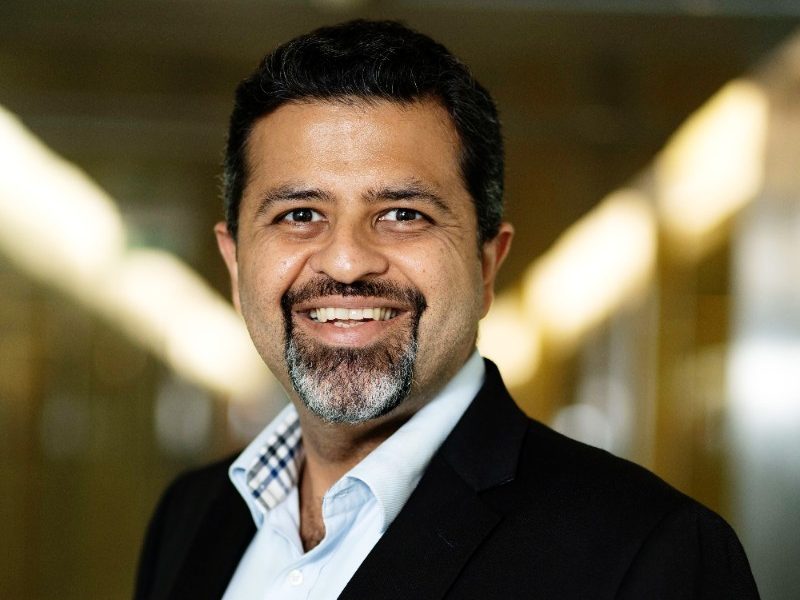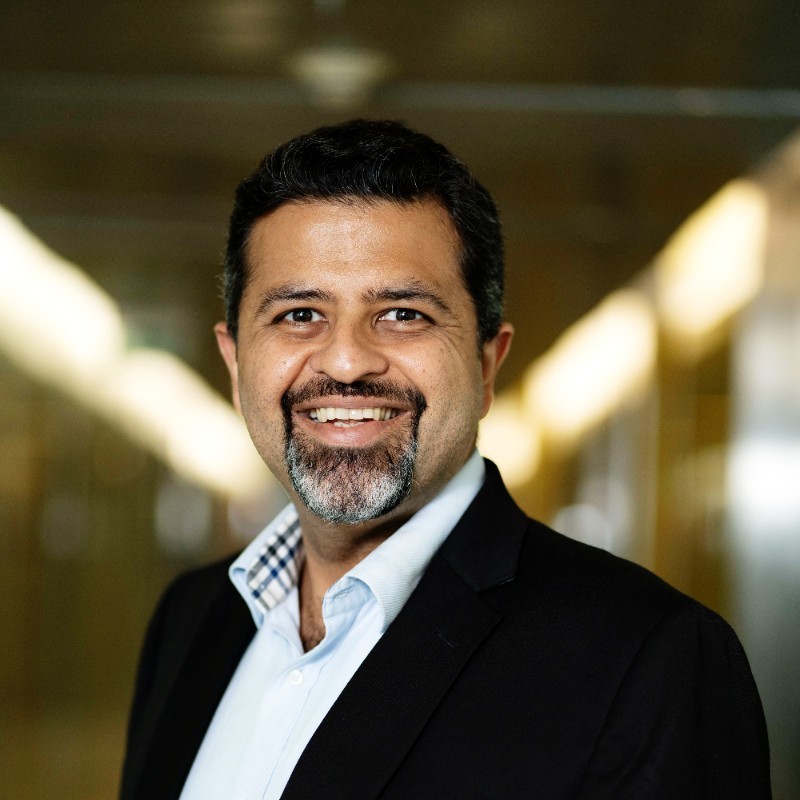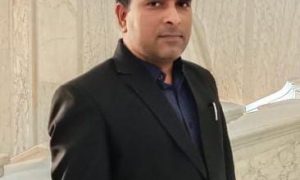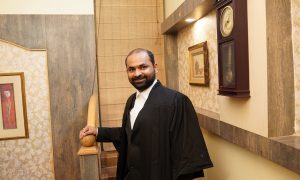This interview has been published by Priyanka Karwa and The SuperLawyer Team

Sir, Please tell us about your role as the co-head of the International Dispute Resolution & Investigations Practice at Nishith Desai Associates? What are your main responsibilities and areas of expertise within the firm?
Thank you for reaching out. As co-head of the practice, I keep one eye on the development of the practice itself, which should always be aligned with the mission and vision of the firm, and the other eye on the day to day execution of client matters. This includes matters pertaining to cross-border disputes, internal investigations and, of late, matters pertaining to ESG advisory, especially in the domain of governance.
As a firm of the future, we pride ourselves on identifying industries and practice areas where we feel issues on the planet as well as other countries intersect with India. The logic is that any new technology developed will have an intersect with law, the regulatory system and the tax system of India and consequently, we like to foresee the impact of such new technologies in India well ahead of time. This requires significant amount of time and effort being invested in researching how the introduction of these new technologies will intersect with the laws of India.
You have extensive experience in handling complex matters, including Indian and international arbitrations. Could you share a notable case or challenge you faced and how you approached it to achieve your clients’ goals?
There are many such instances but the one case I think that stands out is where we, interestingly enough, advised the client NOT to file proceedings in India. We were advising a minority shareholder in a global business where a large portion of the business was generated in India, but the structure made it virtually impossible to initiate any proceedings in India.
Consequently, we thought out of the box and developed a strategy to ensure that our client could prosecute proceedings initiated by him in various other jurisdictions globally using data obtained from the Indian entity i.e. from the board as well as shareholder level.
The stakes were large enough to warrant a strategy that required patience and perseverance to play out, all without filing a single legal proceeding in India. Having said that, we were definitely doing global litigation management and working with the client’s legal team in various other jurisdictions to ensure that the commercial objectives were met. This case once again reminded us that today’s world is so small that what happens in one corner will have ramifications all over the place.
In addition to arbitration, you have advised on corporate and commercial laws, civil and constitutional matters, and criminal offenses. How do you approach these diverse areas of law and ensure that your legal strategies align with your clients’ business goals?
In the world of dispute resolution, it is important to understand that arbitration is merely the process undertaken. But in addition to the commercial dispute that is on top, there may be underlying issues that may have implications under corporate law, criminal law or even constitutional law. You will have to know and apply these laws to the case at hand and see how best to further the commercial interests of the client.
It is also important to spend enough time, listen to the client and understand how the dispute arose in the first place. Of late, we are seeing enough situations where initiating legal proceedings may not even be required. A formal mediation process is enough to help the warring parties bridge the gap. In most cases, a tempered and balanced approach may well suffice. In such cases, handling the client is even more critical. They should always know and be on board with the strategy that you are deploying.
Investigations involving issues such as internal fraud, anti-corruption, anti-bribery, and data privacy are also part of your expertise. Can you share an example of an investigation you conducted and the potential ramifications it had under the FCPA or UKBA?
The awareness about internal investigations in India has grown tremendously and it is good to see India Inc. developing policies and handling whistle-blower complainants in the right spirit. Having said that, we are all clear that there is still a long way to go. Investigations are generally of two kinds. The first kind pertains to employee related infractions where it is more of a fact-finding enquiry and the consequent issues that arise. The second kind of investigation is one where the issues have regulatory implications.
Laws such as the FCPA and the UKBA have extra territorial applicability and this means that an Indian subsidiary of a company incorporated in such a jurisdiction may well find itself on the wrong side of these laws. Some instance of an act taking place in India, where an errant employee has done something against the policies and training imparted, may well trigger a wide scale investigation and require self-disclosure to an authority somewhere else in the world. Compliance is critical. Should an issue arise, it becomes incumbent upon such companies to demonstrate the steps taken by them and remedial measures, if any, that are implemented.
You have been recognized as a Future Leader in the Who’s Who Legal Guide for Arbitration 2023 and have also received commendations for your track record in representing clients investigating improper conduct, whistle blowing, and other company law breaches. How do you maintain such high standards and ensure client satisfaction in your work?
We are blessed with a wonderful work culture and excellent colleagues. I’ve also had the good fortune to work closely and learn from the best.
Mr. Nishith Desai or Nishithbhai, as he is affectionately referred to by everyone, is a tremendous leader and encourages us is every possible way. He challenges our thinking and never hesitates to incorporate his international experience to develop best practices and next practices in the Indian context. Similarly, Vyapak Desai, Gowree Gokhale, Vikram Shroff are all rock stars in their own right. In addition, I’ve had the good fortune to work closely with global stalwarts like Zia Mody, Rajendra Barot and Shuva Mandal. When you have the opportunity to work with such legal luminaries, every moment is nothing short of a tremendous learning curve.
Every matter brings deep learning and when you have the benefit of such tremendous experience around you, you must open yourself up to learning by osmosis.
As part of the Asia Advisory Committee of the American Arbitration Association-International Center for Dispute Resolution, what is your role, and how does it contribute to your professional development and the field of international arbitration?
The legal profession is one which has given us a lot. where you must always look for ways to give back to the community. As dispute resolution practitioners at heart, we see that the courts are tremendously overburdened and need support through effective alternative dispute resolution mechanisms. Institutional arbitration is one such mechanism. It has the capability to help us resolve disputes effectively and rebuild the confidence to do business in India for global companies and investors. At the AAA-ICDR, the role is in an advisory capacity and geared towards understanding and growing the ecosystem of institutional arbitration for India. I find that serving on such committees allows us to participate, in some small yet meaningful way, in creating this infrastructure and option for building effective ADR mechanisms.
You have spoken at domestic and international conferences and conducted training sessions for in-house legal teams. Could you share a topic or experience from one of these speaking engagements that you found particularly impactful or rewarding?
Sahil: Rome wasn’t built in a day. Similarly, bringing about change in the legal profession by impacting its practitioners is an ongoing process. We must always encourage experience-sharing since this is the best way for the newer generations to learn. This is not new; even we learnt from the experiences shared by our seniors. These continue to guide us at each step of the way. Infact, speaking at conferences and training sessions is as beneficial to me as it is to the attendees. I find it particularly rewarding when some individual somewhere writes to me on LinkedIn or some other social media and reflects on a particular point that they learnt from our discussion, which they felt was useful to them somewhere. When that happens, you know you are making a positive difference.
Could you share any insights or observations regarding the changing landscape of business regulations in India or any significant trends you’ve noticed in international dispute resolution and investigations?
While India is doing very well on the global stage, there is a clear need to invest in the infrastructure of the judiciary as well as the procedural statutes that govern us. Enough has been said about how the judiciary is woefully understaffed for a country of our population but we must also pay attention to the fact that it is even the pay scales that are required to be improved. On the other hand, while we have the Commercial Courts Act since 2015, the fact is that it has not been implemented as envisaged. Even the Arbitration & Conciliation Act 1996 has gone through several amendments, some of which were arguably not even required. We’ve got some of the best legal minds on the planet in our midst; we just need to get them into a room and pick their mind on how the ecosystem needs to change quickly.
Lastly, With your expertise and experience, what advice would you give to fresh graduates who are considering a career in law? What skills or qualities should they focus on developing to succeed in this field?
Play the long game. I know we live in the world of immediate gratification, but the legal profession is one where the long game is the one where maximum knowledge, impact and wealth is created. I’d break it up into spending the student years getting maximum internships or paralegalships so as to maximize the experience quotient. Once a student graduates, a 2-3 year investment in themselves exploring different practice areas is becoming necessary. This will ensure that the appropriate career path is chosen and an individual, over a period of time, remains happy with their choice. Another key aspect is to be agile. The world is changing quickly and certain skillsets may very well become obsolete overnight. But experience is what one always holds in good stead. Its important to be agile in one’s career choices.
Get in touch with Sahil Kanuga-
























